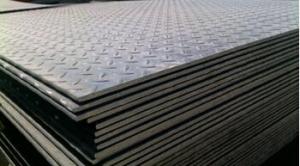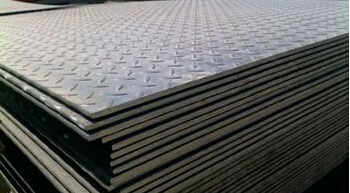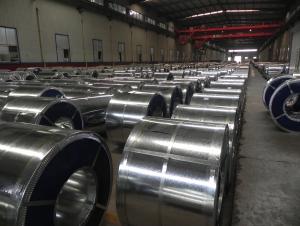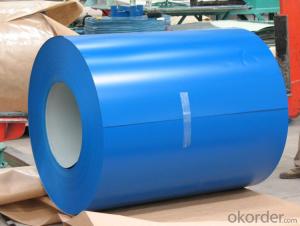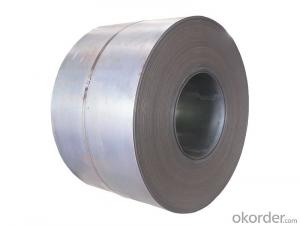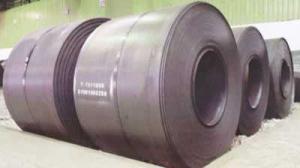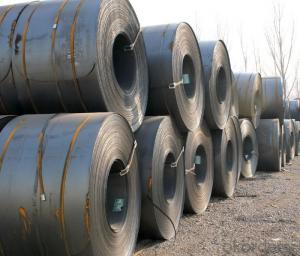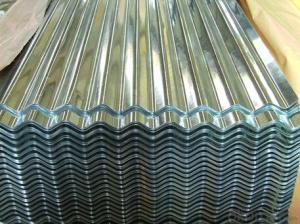Prime Hot rolled Chequerred steel
- Loading Port:
- China Main Port
- Payment Terms:
- TT OR LC
- Min Order Qty:
- -
- Supply Capability:
- -
OKorder Service Pledge
OKorder Financial Service
You Might Also Like
Product: | Hot Rolled Steel Coils/Sheets |
Material: | Q195,Q235,A36,SS400,S235JR,Q345,ST37-2, CCSB etc |
Standard : | JIS G3002 GB/T251B |
Technique: | hot rolled |
Thickness | 1.2mm to 200mm |
Tolerance of thickness: | :+/-0.03mm |
Width: | 750mm-2000mm |
Tolerance of width: | :+/-5.00mm (aiming to +/-2.00mm) |
Normal width: | 914mm, 1000mm, 1200mm, 1219mm, 1250mm,1500mm |
Length: | According to requirement |
Coil ID: | 508mm-610mm |
Coil Weight: | 10-25 Metric Tons |
Surface: | Black, Chromate, fingerprint resistant treatment, slight oiled or non-oiled, dry |
Port of Loading: | Tianjin/Shanghai port |
Packaging Details: | Standard export packing or according to the clients required |
Delivery Time | Within 30 days after received 30% deposit or workable L/C |
Payment Terms: | L/C,T/T |
|
|
- Q: What are the different types of steel coil packaging?
- There are several types of steel coil packaging, including steel strapping, stretch wrapping, shrink wrapping, and wooden crates.
- Q: I have a carbon steel file that I want to bend in a letter C shape. So, what is the malliable temperature? If it's low, could it be done in a camp fire?
- It's now not rather that rough. You can use your charcoal grill to do it. First construct a colossal fireplace in it after which bury the metal within the coals. It'll simplest take approximately ten minuites or so for the metal to warmth by way of. Then decide on it out of the coals with tongs and drop it right into a bucket of water. Repeat as preferred. Eventually it is going to get as brittle as glass. To repair this, you have got to anneal the steel. Again warmth the steel within the coals, simplest this time allow it keep there till the coals cross the entire manner out all by way of themselves. Next day while the entire manner cool, Take it out and blank it off. Viola!, you may have hardened metal.
- Q: Are steel pokemon weak against any attacks? If so, what types? (like water, grass, etc.)
- I believe a fire pokemon wins against a steel.
- Q: How do steel coil manufacturers handle product recalls?
- Steel coil manufacturers handle product recalls by following a systematic process to ensure the safety and satisfaction of their customers. Here is an outline of the steps involved in handling product recalls: 1. Identification of the issue: Once a potential problem or defect is discovered in the steel coils, manufacturers initiate the recall process. This may be due to a quality control failure, safety concern, or non-compliance with industry standards. 2. Investigation and evaluation: The manufacturer investigates the root cause of the problem and evaluates the potential impact on customer safety and satisfaction. They analyze the affected batch or production run to determine the extent of the issue. 3. Notification: Manufacturers promptly notify customers who have purchased the affected steel coils. They use various channels, such as direct mail, email, phone calls, or public announcements, to inform customers about the recall. The notification includes specific details about the problem, potential risks, and instructions on how to proceed. 4. Retrieval and replacement: The manufacturer provides instructions on how customers can return or dispose of the recalled steel coils safely. They may offer options for product retrieval, such as direct pick-up from the customer's location or designated drop-off points. In some cases, manufacturers may provide replacement steel coils or reimburse customers for the affected products. 5. Public communication: Steel coil manufacturers issue public statements and notifications to inform the wider market, distributors, and retailers about the recall. This ensures that all stakeholders are aware of the issue and can take appropriate actions to address it. 6. Corrective actions: After retrieving the recalled steel coils, manufacturers implement corrective actions to rectify the issue. This may involve improving their quality control processes, upgrading manufacturing equipment, or revising product specifications to prevent future recalls. 7. Customer support: Throughout the recall process, manufacturers provide customer support to address any concerns, questions, or complaints. They establish dedicated hotlines, email addresses, or online portals to assist customers with their inquiries and guide them through the recall process. 8. Regulatory compliance: Steel coil manufacturers ensure compliance with relevant regulatory authorities and standards organizations during the recall process. They work closely with regulatory agencies to provide necessary information, documentation, and updates to address any legal requirements. Overall, steel coil manufacturers prioritize customer safety and satisfaction when handling product recalls. They follow a well-defined process that involves identification, investigation, notification, retrieval, replacement, public communication, corrective actions, customer support, and regulatory compliance. Through these steps, manufacturers aim to rectify the issue, prevent harm, and maintain trust with their customers.
- Q: help me and my twin love this cutie in our form !? how do we steel hime from bitchey rebecca!? X X X xX
- Maybe you can learn to spell. Perhaps he is attracted to intelligence. He may want a mother for his children that can read a Campbells soup can.
- Q: Myself, iam Working In a Steel Fabrication Company. I completed my Engineering in 2006 and immediately recruited in this company in Oman. My company is Steel Fabrication company .So as i am new to this field, i just need some basic knowledge regarding this Steel Fabrication.Waiting for ur early reply.
- make searches on internet; it's the best way to learn.
- Q: can you play one?
- Yessir. No, I can only play a piano and Guitar Hero.
- Q: I'm getting my nose pierced, meaning that i have to keep the piercing in for a prolonged time. i've always had reactions when wearing sterling silver or fake earrings (i dont know what types of metal they were) after wearing it overnight. Will I get a reaction on my nose piercing if the stud is surgical steel?
- Good quality surgical steel reactions are rare. (has a lot less nickel than stainless steel) They have a teeny amount of nickel, but even the most serious reactors rarely have problems with it. Titanium has even less nickel. Niobium none (but that can be hard to find) Theres also quartz, which is fine to pierce with, but not for sports. I react to alot of cheap 'metals'. Which mostly end up being nickel plated. Like necklaces and belt buckles. Even some gold (which is nowhere near as good as people seem to think) Never had a problem with surgical steel or ti. I'd get titanium if you're worried. Its readily available.
- Q: I already have the county permits and bank loan, but the foundation hasn't been poured. Is it too late to convert to steel?
- Steel is going to be a whole different world. You will need to go back to square one and get house plans that are drawn for structural steel. First thing you need to do is find a builder that knows how to build with steel and get an idea of the price.
- Q: What are the common methods of welding steel coils?
- The common methods of welding steel coils include shielded metal arc welding (SMAW), gas metal arc welding (GMAW), flux-cored arc welding (FCAW), and submerged arc welding (SAW).
Send your message to us
Prime Hot rolled Chequerred steel
- Loading Port:
- China Main Port
- Payment Terms:
- TT OR LC
- Min Order Qty:
- -
- Supply Capability:
- -
OKorder Service Pledge
OKorder Financial Service
Similar products
Hot products
Hot Searches
Related keywords
